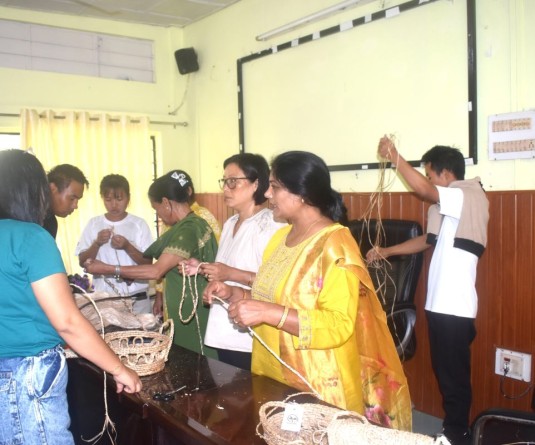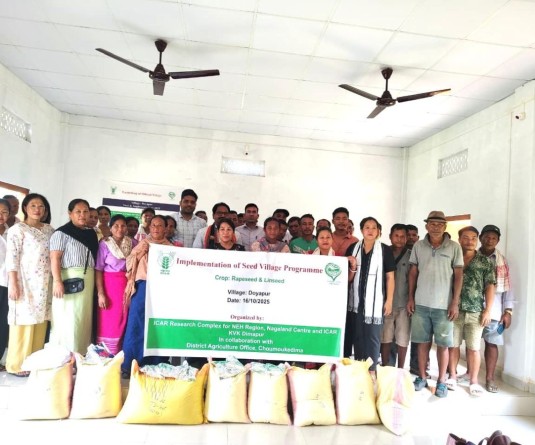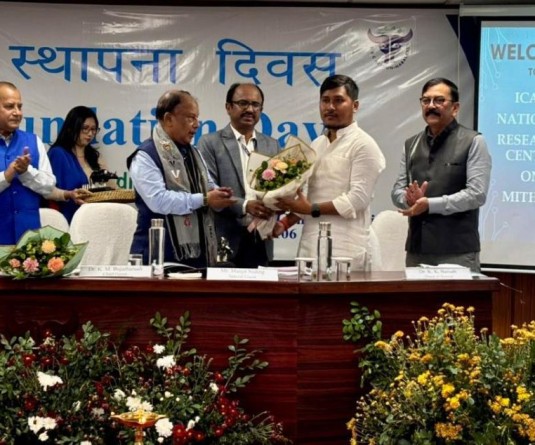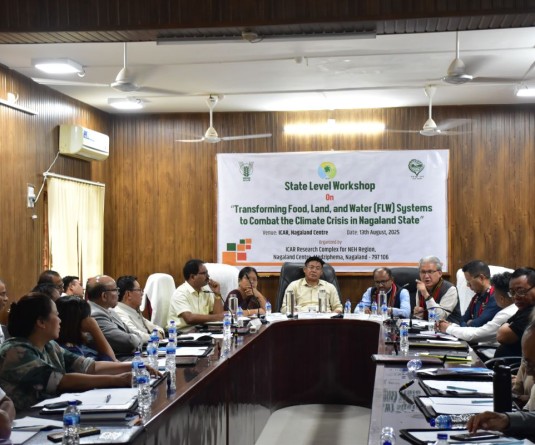ICAR-NRC on Mithun conducts training on COVID-19 diagnosis
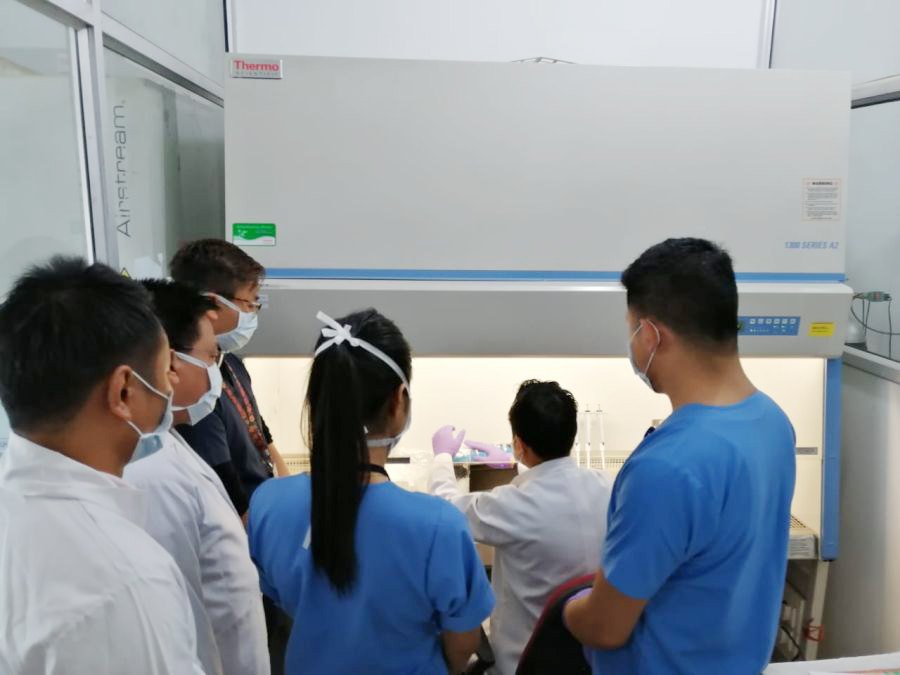
Medical team from CIHSR are seen with ICAR-NRC scientists during the a hands-on training Real Time PCR training for COVID19 diagnosis held at the latter’s laboratory recently. (Photo Courtesy: ICAR-NRC)
Medziphema, April 19 (MExN): The Indian Council of Agricultural Research -National Research Centre on Mithun (ICAR-NRC) recently held offered a hands-on training on the Real time PCR to the medical team of Christian Institute of Health Sciences and Research (CIHSR), Dimapur.
According to the Indian Council of Medical Research (ICMR) the laboratory personnel have to undergo a mandatory training at the designated Viral Research and Diagnostic Laboratory of ICMR before a particular laboratory is approved as COVID19 testing centre.
Nagaland is setting up two high-end state-of-the-art biosafety level (BSL) facilities in Naga Hospital, Kohima (NHAK) and CIHSR, Dimapur.
Dr Sedevi, Director of CIHSR advocated that the medical team of CIHSR should undergo hands-on training on Real time PCR before the BSL facility is ready and Dr Abhijit Mitra, Director, ICAR-NRC on Mithun, Medziphema agreed to offer its support and expertise to use the technique, a press release from ICAR-NRC informed.
A medical team of CIHSR led by Dr Nito Yepthomi attended the training which was co-ordinated by Dr H Lalzampuia and Dr Sosang Longkumer of Mithun Institute.
Real time reverse transcription-polymerase chain reaction (real time RT-PCR) is one of the most accurate laboratory methods for detecting, tracking, and studying the coronavirus that causes the COVID-19 disease, it said.
In contrast to the conventional RT-PCR which provides results at the end, real time RT-PCR allows to see the results almost immediately while the process is still on, it added.
In a PCR machine, only DNA can be copied or amplified. However, some viruses such as the coronavirus (SARS-Cov2) only contain RNA as genetic material. For detection of an RNA virus like the coronavirus using real time RT-PCR, one needs to convert the RNA to DNA using a process called ‘reverse transcription,’ the release informed.
“Then, a specific part of the transcribed viral DNA is amplified hundreds of thousands of times enabling the detection of even a very small number of the target virus with high precision. While the method of real time RT-PCR is now the most widely used method for detecting coronaviruses, technical skill and support are required in setting up and using the technique,” it maintained.
The hands-on training was organized on the real time PCR and its uses in the detection of nucleic acids, it added.
According to the release, basic theoretical aspects of real-time PCR including the mechanism and chemistry of detection were also explained followed by demonstration for setting up of reaction and running of the machine at the training.
The participants handled the mock samples (non-infectious) by themselves and emphasis was given on the importance of good laboratory practices (GLP) for minimization of risk in handling an infectious sample in the laboratory, it said.
Besides, analysis of the result and troubleshooting of different types of problem in the data were highlighted.
The trainees were also taught about sample handling, isolation of RNA, cDNA synthesis as well as quality checking of nucleic acids, the importance of sample quality in the downstream analysis, it added.
Meanwhile, the ICAR-NRC’s release mainitaned that the council during the the present COVID-19 crisis, not only handholding the agricultural sectors in mitigating the impact on the farming communities but also coming forward in strengthening the country's capability in fighting the pandemic.
ICAR Institutes like Indian Veterinary Resarch Institute, Bareilly; NRC on Equine, Hisar and National Institute of High Security Animal Diseases (NIHSAD), Bhopal already geared up their laboratory facilities for COVID19 diagnosis, it said.
Other Institutes are also coming forward extending their facilitites and developing human resources providing training, it added.


